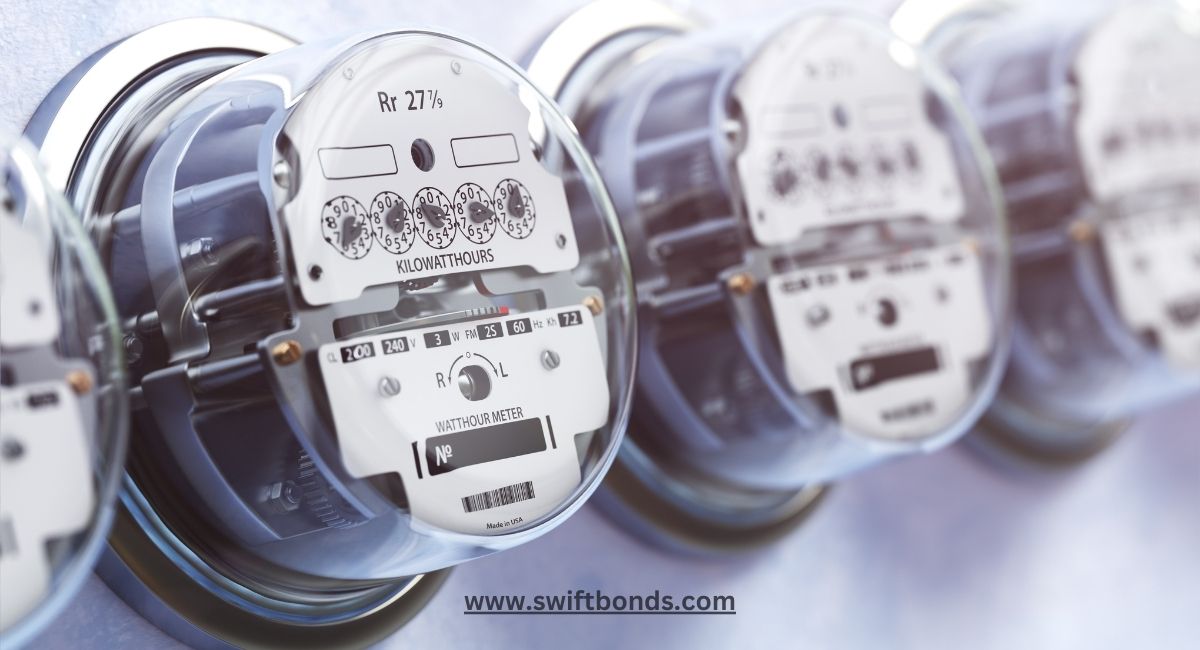Get an Instant Quote on (CEPS) Competitive Electric Power Supplier Bond
Introduction
From our perspective, entering the competitive electricity market in New Hampshire is both a business opportunity and a regulatory challenge. Any company planning to operate as a Competitive Electric Power Supplier (CEPS) must secure a New Hampshire - (CEPS) Competitive Electric Power Supplier ($100,000) Bond before being licensed by the Public Utilities Commission (PUC). This bond serves as a financial guarantee that the CEPS will comply with all applicable rules, maintain integrity in their dealings with consumers, and fulfill obligations such as refunds and billing.
The bond’s $100,000 value reflects the PUC’s strong interest in protecting consumers in an industry that impacts nearly every resident. Like the New Hampshire DOT - Right of Way Permit Bond, which guarantees restoration of public infrastructure after construction, the CEPS bond guarantees honest business conduct and consumer protection. This bond isn’t optional—it’s a prerequisite to enter New Hampshire’s deregulated electricity market.
Companies that understand and meet this requirement position themselves as trustworthy players in a tightly regulated sector.
Misconceptions That Delay Competitive Energy Launches
We’ve noticed that some CEPS applicants wrongly assume that proof of insurance or financial strength is enough to satisfy New Hampshire’s licensing standards. Others overlook the bond entirely until their application is rejected, resulting in delays that could cost months of potential revenue.
Here’s the truth: the bond is a mandatory component of the CEPS licensing process. It must be in place before the Public Utilities Commission grants final approval. It doesn’t just demonstrate financial capability—it also serves as a compliance tool to cover penalties, restitution, or regulatory violations. Just like the New Hampshire - Consumer Guaranty Contracts Bond, it reflects the state’s goal of protecting consumers from predatory practices.
Ignoring this bond means stopping before you start. Understanding the requirement early helps you stay ahead.

Swiftbonds Offers a Seamless Bonding Process for Energy Suppliers
Based on our experience, Swiftbonds has guided numerous utility and energy companies through the CEPS bonding process in New Hampshire. Our team understands the state’s bonding language, documentation standards, and approval timelines. That means we can get you to the finish line faster.
Swiftbonds provides:
-
The correct CEPS bond form accepted by the New Hampshire PUC
-
Access to multiple surety markets to help you qualify affordably
-
Fast application review with same-day approvals available
-
Ongoing support to maintain your bond year after year
We’ve helped other regulated industries meet similar requirements, including holders of the New Hampshire DOT - Right of Way Permit Bond and New Hampshire - Consumer Guaranty Contracts Bond. Whether you’re entering the energy market for the first time or transitioning from another state, our streamlined approach removes guesswork and delay.

What Every CEPS Needs to Do to Get Licensed
What we’ve discovered is that there’s a proven process for obtaining and maintaining the New Hampshire - (CEPS) Competitive Electric Power Supplier ($100,000) Bond:
- Apply With the Public Utilities Commission - Begin the CEPS registration process with the New Hampshire PUC. You’ll need to meet financial, technical, and operational requirements before being approved.
- Secure the $100,000 Bond Through Swiftbonds - Submit basic business information, financial background, and licensing documents to us. We’ll pair you with a surety provider that fits your needs.
- Submit the Executed Bond to the PUC - Once your bond is issued, send the original bond and power of attorney to the PUC as part of your final licensing documents.
- Stay Compliant - The bond must remain active throughout your operations. If it lapses, your license is at risk.
The PUC takes consumer complaints and enforcement seriously, so ongoing compliance is key. Swiftbonds helps keep your bond in good standing with reminders, renewal support, and flexible payment options.

Why Getting It Wrong Could Hurt Your Business
In our observation, businesses that overlook bonding requirements or apply for the wrong type of bond often face significant delays or outright rejection. The New Hampshire - (CEPS) Competitive Electric Power Supplier ($100,000) Bond is a legal requirement. Failing to meet it can trigger:
-
Rejection of your supplier license application
-
Delays in launching retail operations
-
Penalties for offering services without full approval
-
Reputation damage among regulators and consumers
Think of this bond the way a contractor views the New Hampshire DOT - Right of Way Permit Bond—as the cost of doing business where public trust and state oversight are involved. Without it, you’re not permitted to operate. With it, you gain credibility and access to the retail electricity market.

New Hampshire Statutes and Energy Bonding Rules
The CEPS bond requirement stems from RSA 374-F, the statute that governs electric utility restructuring in New Hampshire. This law allows consumers to choose electricity suppliers while giving the Public Utilities Commission authority to regulate suppliers and require financial security.
Under PUC rules, all CEPS applicants must:
-
File a completed registration application
-
Maintain a $100,000 surety bond for the life of their license
-
Provide consumer disclosure information
-
Comply with billing, marketing, and renewal regulations
Failure to comply can result in suspension or revocation of the CEPS license. The PUC may file a claim against your bond to satisfy consumer restitution or administrative penalties. Similar rules apply to other regulated industries, such as those needing the New Hampshire - Consumer Guaranty Contracts Bond, which protects consumers purchasing products or services with future delivery guarantees.
For more details on these statutory requirements, visit the New Hampshire Public Utilities Commission website.
Conclusion
We’ve come to appreciate that operating as a CEPS in New Hampshire isn’t just about competitive pricing—it’s about compliance, consumer confidence, and regulatory integrity. The New Hampshire - (CEPS) Competitive Electric Power Supplier ($100,000) Bond is more than paperwork—it’s your public commitment to follow the rules and serve customers fairly.
Swiftbonds stands ready to help you secure this bond quickly and affordably. Our team understands New Hampshire’s energy market and the importance of keeping you fully compliant with bonding and licensing requirements. We also support related bonds, such as the New Hampshire DOT - Right of Way Permit Bond and New Hampshire - Consumer Guaranty Contracts Bond, giving us broad expertise in regulated operations.
Whether you’re new to New Hampshire or expanding across states, Swiftbonds is your trusted partner in meeting surety obligations the right way.
Frequently Asked Questions
Who must obtain a New Hampshire CEPS bond?
We’ve often noticed that only certain applicants are aware of this requirement. Any business applying for a license as a Competitive Electric Power Supplier in New Hampshire must post a $100,000 surety bond before operations begin.
What does the CEPS bond guarantee?
We’ve often noticed confusion about the bond’s purpose. It guarantees that the supplier will comply with PUC rules and provides financial protection to the state and consumers in case of violations or contract failures.
How long does the bond need to remain in place?
We’ve often noticed licensees asking about expiration. The bond must remain active for as long as the CEPS is licensed to operate in New Hampshire.
Can the bond be canceled early?
We’ve often noticed concerns about bond obligations. While bonds can be canceled with notice, the CEPS license may be suspended if there is no replacement bond filed in time.
How much does the CEPS bond cost annually?
We’ve often noticed questions about pricing. While the bond amount is $100,000, annual premiums typically range from $1,000 to $5,000 depending on financial strength and creditworthiness.


